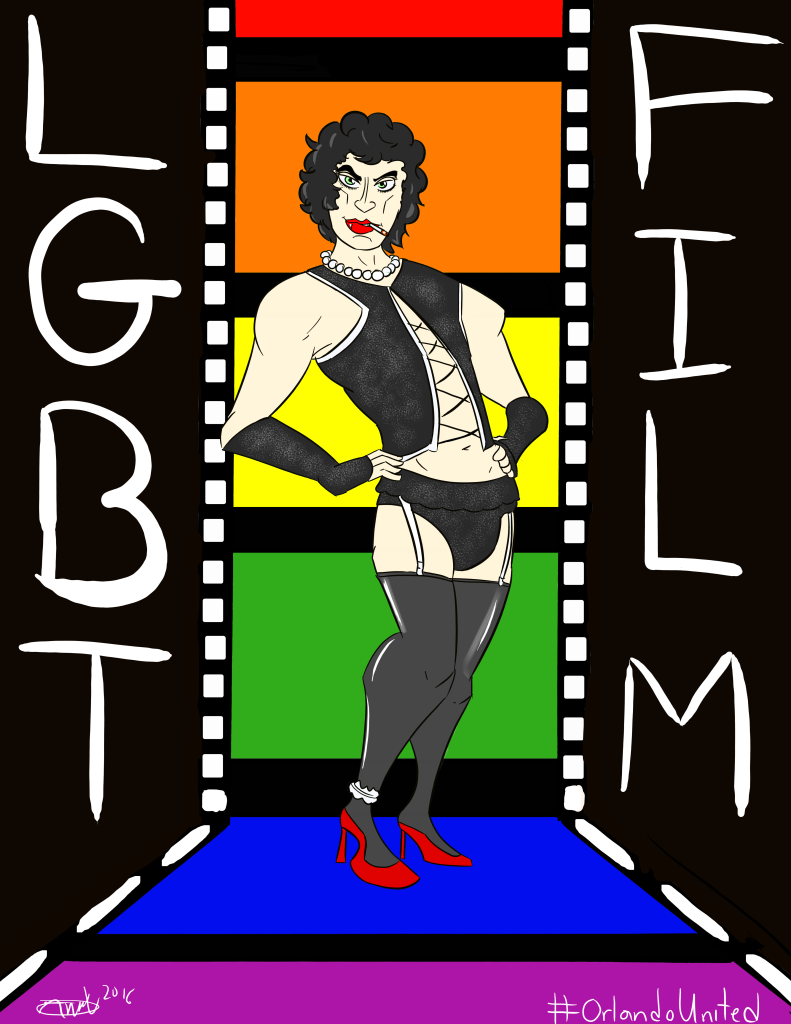
Original art by Andy Vanderbilt!
We’re back again! With all that’s going on in the world and in this mixed-up country of ours in particular, and in honor of Pride Month, this week’s team effort started from this question:
WHAT’S YOUR FAVORITE LGBTQ-THEMED MOVIE?

JEREMY LOWE: My coming out process wasn’t as hard as it was for most LGBT people. I have a very supporting group of family and friends. The fact that I’ve always been heavily involved with the punk/oi/hardcore scene, I didn’t take anyone’s bullshit. You want to call me a fag, I’ll call you an ambulance. At the same time I never understood why we needed a gay pride parade. I always figured it was just the way I was born, and there was no need to take “pride” in something I had no control over. That was until I saw the 1995 movie STONEWALL. This movie changed everything for me! I can quote STONEWALL with tears running down my face and still be filled with happiness. I used to look down on drag queens, and here I saw them portrayed as the true badasses that they are! Hell, I actually did drag for a little while after seeing STONEWALL. Top notch soundtrack as well! If it wasnt for STONEWALL, I wouldn’t have an appreciation for 50’s and 60’s girl groups like The Shangri-La’s, The Ad Libs, and The Shirelles. To find out that the Judy Garland’s death, police oppression, and a small scale riot were the catalyst for the gay rights movement really opened my eyes to why we have a gay pride celebration. If you haven’t seen STONEWALL, do so right away.
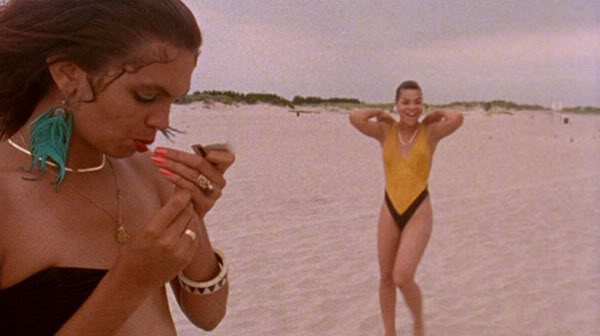
RYAN CAREY: For me it’s gotta be PARIS IS BURNING (1990), an ahead-of-its-time documentary chronicling New York’s urban gay culture with heart and intelligence well before it was probably even safe to do so. If you want to know where Madonna ripped off the idea for “Vogue Dancing” from, look no further. A superb look at a time, place, and way of life before it was destroyed by means of commercial co-opting, I can’t recommend this one highly enough.
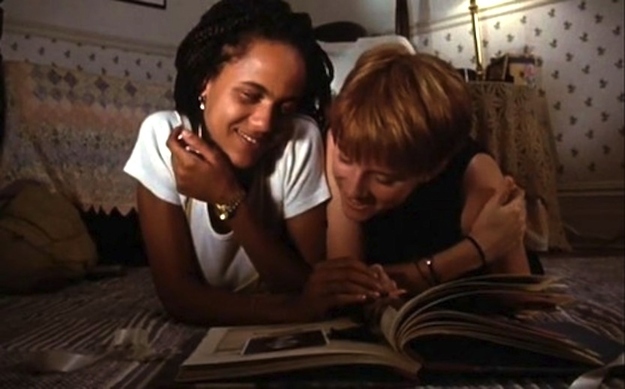
MOE PORNE: I’ve always been fond of THE INCREDIBLY TRUE ADVENTURE OF TWO GIRLS IN LOVE (1995).
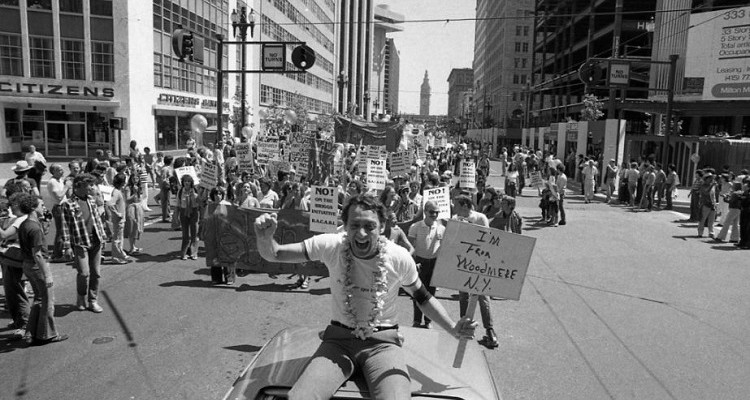
DOUG TILLEY: While I’d hesitate to suggest I grew up in a conservative area, rural Newfoundland was certainly a rigidly self contained place where one was expected to keep their individuality — and their sexuality — as low-key as possible. It wasn’t until university that I was awakened to the beautiful variety of sexuality that exists in this world. Part of that quickening was viewing the amazing documentary THE TIMES OF HARVEY MILK, which demonstrated both the intense, never-ending struggles of California’s gay community, as well as the election of their first openly gay public official. In many ways it’s an incredibly tragic story, but also symbolic of how far the LGBTQ movement has progressed since the 1970s. Sadly, as with any revolution, too much blood has been shed.
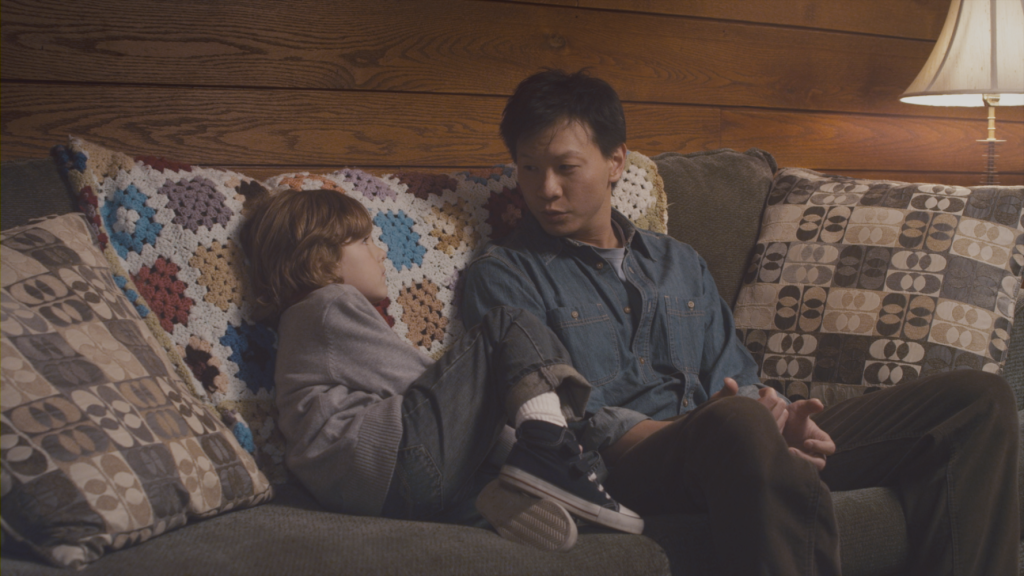
SHARON GISSY: I really like the understated drama IN THE FAMILY (2011) by Patrick Wang. It deals with the important issue of gaining custody of a child when LGBTQ rights come in, and it demonstrates a real understanding for gender fluidity in that there is a man who falls for another man for it just being the right kind of a relationship. Nothing very grindhouse about it, but it hit all the right notes for me.
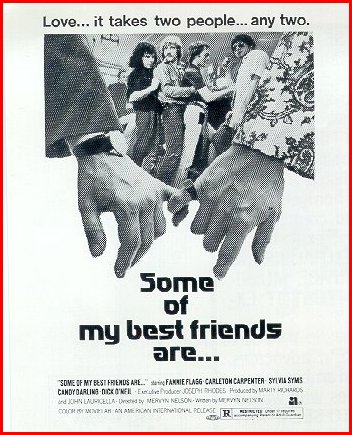
PAUL FREITAG-FEY: My initial reaction was to pick THE ADVENTURES OF PRISCILLA, QUEEN OF THE DESERT, which I love and is one of my go-to films whenever I need cheering up, as it’s got three very different, well-rounded lead characters immersed in a road trip with plenty of amazing costumes and music and a fine blend of drama and comedy. However, after the events of this past weekend, I revised 1971’s SOME OF MY BEST FRIENDS ARE…, an unjustly obscure drama about one evening in the left of the Blue Jay Restaurant and Bar, a refuge for the various queer patrons of a California city. (Including Rue McClanahan, Gil Gerard, WKRP‘s Gary Sandy and Warhol superstar Candy Darling) You can argue that some of the characters are dated stereotypes, but they’re wildly diverse and not driven by the mean-spirited behavior that the characters in the same year’s THE BOYS IN THE BAND do. It’s a fascinating portrayal of what the gay bar actually meant in 1971, and what it still means as a symbol as a place where LGBTQ people can be themselves without fear of recrimination. As a counterpoint as to how dated it isn’t, pair it with 2006’s SMALL TOWN GAY BAR, a fascinating documentary showing how crucial a rural Mississippi gay bar is to its patrons as a place to be exactly who they are.
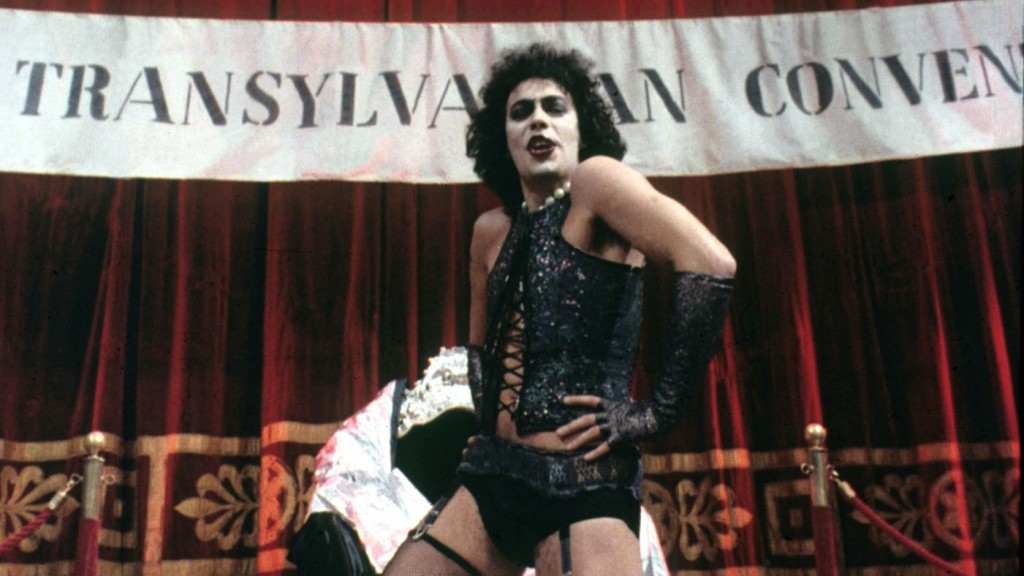
MIKE VANDERBILT: Growing up on the south side of Chicago in the ‘80s and ‘90s, you didn’t meet many “out” homosexuals. Due to a good upbringing, I was always a very tolerant, liberal kid when it came to issues of race or just meeting folks that were different than myself.. When I was nine years old I started watching The Kids In The Hall regularly on HBO on Friday nights (repeats on Wednesday after Tales From The Crypt). Scott Thompson’s character “Buddy Cole” was one of the first characters I saw in media that I could identify as gay. The Kids In The Hall never used homosexuality as a punchline like the harmless, albeit out of touch”MEN ON” sketches from In Living Color/ THE KIDS IN THE HALL effortlessly did what other shows of the day tried so hard to do…
They just made homosexuality so gosh darn normal.
Scott Thompson, the most openly gay player on the show, was just one of the guys who was funny, filthy… and also gay. I don’t know if I necessarily noticed this in my adolescence, but it certainly seeped into my psyche during those formative years.
If The Kids In The Hall made being gay feel normal, THE ROCKY HORROR PICTURE SHOW made it infinitely cool. While an alien being from the planet Transexual in the galaxy of Transylvania is hardly the most down to earth, realistic example of a gay character in film, Tim Curry’s Dr. Frank N. Furter is instantly memorable. The wild pastiche of ‘50s science fiction and ‘70s glammy sleaze via rock ‘n’ roll music, gave way to a sweet, and somewhat touching message of “Don’t dream it, be it” which could be applied to anyone who felt weird, strange, picked on, or out of place (including myself at fifteen years old) became a mantra for many a gay person throughout the swinging ‘70s and into the puritanical Reagan ‘80s.
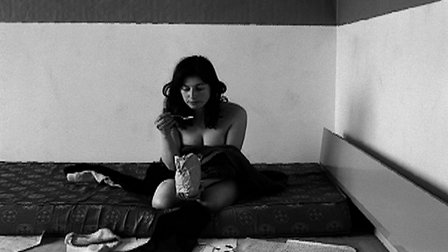
JAMIE RIGHETTI: There are so many incredible and important films that we can celebrate for Pride month. But when I thought about it, I knew JE TU IL ELLE (1974) would likely get overlooked, and I wanted to make sure it didn’t. Here’s the thing: Chantal Akerman would hate me for including her film on this list. Akerman was infamous for refusing to let her films be included in LGBT festivals, or having her work labeled as a lesbian or gay narrative.
JE TU IL ELLE documents the aftermath of a break up. The film is broken up into three parts. In an empty room we meet Julie, played by Akerman herself, a young woman struggling to understand herself and the breakup she has just undergone. Eventually, Julie hitchhikes with a trucker who cajoles a handjob out of her and tells her that fatherhood has ruined his marriage. Finally, Julie returns to the apartment of her former lover. The couple have sex, but still part ways in the morning.
As Akerman herself has said, JE TU IL ELLE is simply a love story. And it is. Akerman’s unflinching long cut of lesbian sex is passionate, raw and even ugly at times. But the film, aided by its lesbian director/writer, is able to transcend fetishization and objectivity. In this respect, Akerman was right; JE TU IL ELLE is simply two women, who were once in love, saying their final goodbye. And yet it is so much more.
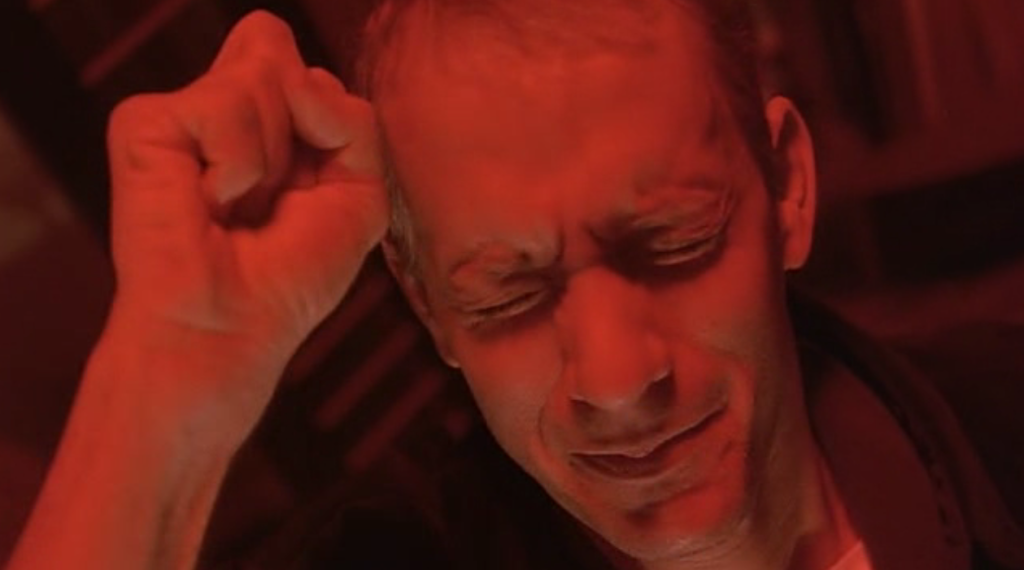
JON ZILLA: In my opinion, the purpose of life is to improve, to be better tomorrow than you were today. If you were less than tolerant yesterday, now you know what you’d better work on tomorrow.
I grew up fifteen minutes from New York City, in an unusually ethnically and religiously diverse neighborhood. I’m generally the palest shade in my social circle. I’ve never had too many friends who look much at all like me. Gender-wise, I have a phenomenal mother who’s more capable than any human being I’ve ever met, and I have a fantastic sister who didn’t take any shit off my guy friends as a kid and who continues to impress me as an adult, as she advocates for people who no one else cares about. So it’s never even occurred to me to think of women as inferior to men. And religion is a subject of intrigue to me, not a reason for division. I’m interested in what different people believe, and why. I spent as much time at my friends’ churches as I did at the synagogue where I was bar-mitzvah’ed. Even on the political end, I have plenty of friends who skew more to the right than I do. For sure, I’m proud of all that stuff. Nobody’s perfect and I’m particularly far from it, but when it comes to gender/ethnic/racial/religious equality and political balance, I do my damnedest to stay open-minded. But in full honesty, there was a time in my life when I was much more guarded than I am now, where LGBTQ culture is concerned. That I’m not proud of, but I think it’s worth admitting.
A small part of that is founded in the crueler edges of childhood. There’s that word I occasionally used on the playground, long before I ever understood how savagely it could be used to hurt someone who might be facing discrimination based on their orientation. A more significant factor, I think, is an inappropriate incident that befell me the first time I ventured into pre-Disney Times Square alone, at the age of thirteen or fourteen. The details are unnecessary in this context, but the bottom line is that smart and decent people don’t blame one unpleasant anecdote on entire cultures, and I’ve always aspired to be smart and decent, as frequently as I may fall short there.
How does one expand one’s own narrowed mindset? It takes interaction. It takes challenging one’s own comfort zones. For me it was the slow realization that a few of the guys in my classes at school (not a lot of people at my school were “out”) might have different preferences than I do, and that such distinctions hardly matter when it comes to the content of a person’s character. It took all my friends in college dressing in drag for a party the first week of freshman year — some gay and most straight — and while I may have been too uptight to do that myself, it showed me I didn’t have to be. It took going to events like OutFest when I moved to LA, accompanying friends to nightclubs I wouldn’t otherwise have picked to visit. For me it takes being open, recognizing occasional prejudices in myself and making the decision to reject those more toxic instincts. It takes work, in a way, and also it takes no work at all. It takes befriending real-life LGBTQ people, time and again, just as I’ve befriended so many women and black folks and Catholics and Muslims and Republicans and on and on, because this world has enough assholes and I just plain don’t want to be one of them. And yes, I do believe movies do play a role. Culture matters.
So all of that said, the first movie that came to mind is PHILADELPHIA (1993). I first saw and internalized that one at just the right time in my development, not long after that Times Square episode. I’ve read some sensible critiques of some aspects of the movie since, and I certainly agree that it’s in some ways a straight take on gay culture, being the work of a straight director (Jonathan Demme) and straight stars playing gay (Tom Hanks and Antonio Banderas), not to mention it provides straight audiences with a point-of-view character in Denzel Washington — although that reading undervalues Ron Nyswaner’s contribution. Maybe I’d see the movie with different eyes today, but I’ll tell you something: There’s something to be said for points of access. As a straight guy who grew up a town over from Denzel Washington, maybe I needed that point-of-view character. Maybe it helped that the guy I liked in DRAGNET and THE ‘BURBS and JOE VS. THE VOLCANO played the lead role. Maybe that helped me empathize with his character’s position more than I otherwise might. Please don’t get me wrong: More widespread representation is crucial, and overdue. LGBTQ audiences deserve as many LGBTQ stories from LGBTQ filmmakers as straights get from straight filmmakers. But I’m speaking here from my own perspective, which is the only one I have any authorship over, really: In 1993 I probably needed a movie like PHILADELPHIA, to help shape my worldview, which was still somewhat unformed and nebulous at that time. As a young straight man I could have ended up a bigot, or I could be a person who tries to do better. Due to being moved by that story and many others that followed, I revised my behavior and attitudes for the positive, and I continue to do so every time I fall short, which only goes to show the power that movies with right-placed hearts can make a difference.
P.S. My current favorite is HIRED TO KILL (1990), but that’s mostly because I’m trying to lighten the mood a little with some hardcore nonsense.
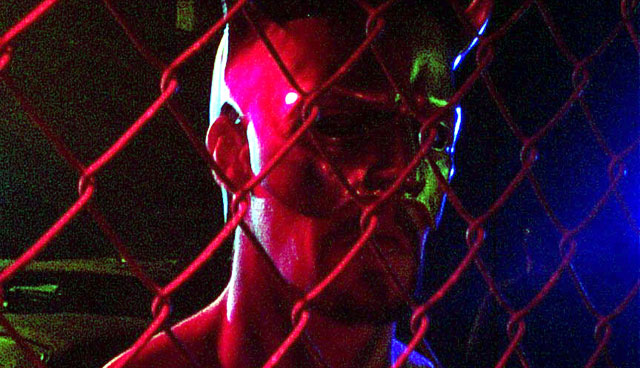
MATT WEDGE: The first movie that popped into my mind when I saw this question was not an “important” film. While I appreciate the serious and sincere nature of something like PHILADELPHIA, too many subsequent movies took the wrong lesson from that film. Many “important” or “serious” LGBT-themed films that were released in the years following the success of PHILADELPHIA were Oscar-bait in some of the worst possible ways (IN & OUT did a great job of skewering those with its movie-within-a-movie Oscar clip). These films seemed to exist to make me feel good about myself as a straight man by telling the story from the perspective of a straight person who overcomes their homophobia by gallantly helping a gay person. I’ve always believed that genre films are often better at tackling social issues than self-serious dramas. I just wanted to make that clear so no one thinks I’m taking this question lightly by saying that the best LGBT-themed film I’ve watched is the little-seen 2004 slasher flick, HELLBENT.
On the surface, there is nothing especially unique about HELLBENT. A cold open finds a couple having sex in a car in a secluded park. As is de rigueur in slasher movies, the couple is brutally slaughtered by a masked maniac. The film then follows a group of friends on Halloween night as they dress up in costumes, go to a club, make awkward attempts to flirt with guys they have crushes on, and are stalked and killed off one-by-one by the same masked maniac from the opening scene.
While these are all generic slasher-101 tropes, HELLBENT has two things going for it that set it apart from most slasher films. The first is that nearly every character in the film is gay. This includes the couple from the opening scene, the group of friends being stalked by the killer, and most of the side characters the group comes into contact with. The second thing that makes the film stand out is that writer/director Paul Etheredge (credited as Paul Etheredge-Ouzts) makes the audience care about the characters. The main group of friends, while all falling into standard genre character stereotypes, is likable. They are supportive of each other, alternately charming and awkward, and have recognizable strengths and weaknesses. They feel more like people you would actually run into in your daily life—a far cry from the one-dimensional heroes and assholes of most slasher flicks. This allows Etheredge to pull off the stealth move of presenting a gay community that is relatable to people of any sexual orientation. The film never shies away from characters having sex, making out, or celebrating their lifestyle—it does take place in West Hollywood, after all. But HELLBENT never presents the characters as “others.” Being gay is just part of who they are and their concerns and activities are no different than anything you would find in a “straight”—forgive the pun—slasher flick.
Liking and caring about the characters is the film’s biggest strength. It takes a basic slasher framework and makes it actually frightening as the masked killer—who has no identity, motivation, or back story—stalks and murders this group of friends who the audience has come to care about. Where most slasher flicks are all about the kills (Etheredge does stage some nifty, bloody set-pieces), HELLBENT puts you firmly on the side of the potential victims because of how relatable they are. It is a clever and obvious trick for any slasher film—whether LGBT-themed or not—to make the audience care about the characters, but most filmmakers tend to either go the nihilistic route of turning all the potential victims into unrepentant jackasses or try to create a post-modern, winking SCREAM-style horror-comedy. But Etheredge understands that nothing can be as scary or suspenseful as watching characters we like go up against a faceless maniac. It worked forty years ago in BLACK CHRISTMAS and HALLOWEEN and it worked again in 2004 with HELLBENT.
I have not watched HELLBENT since the senseless murders of so many people in Orlando, Florida. With the masked killer acting as an obvious metaphor for violence against the LGBT-community inspired by homophobia, I have a feeling the film would be a more difficult watch. That would be a shame since most of HELLBENT is so entertaining. The script is witty, the horror and suspense sequences are well done, and the actors appealing. But it is hard to ignore how the tragedy in Orlando highlights the serious undertones in the film and reveals just how much Etheredge undersells the dangers of being gay and celebrating who you are—even in 21st century America.
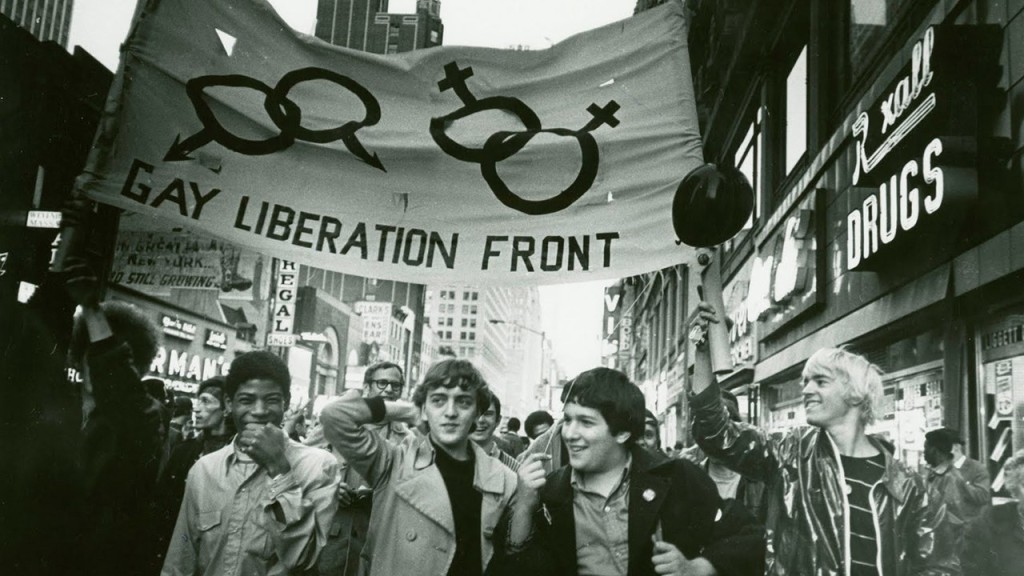
JOHN REENTS: Growing up in a farm town in the early 90s, there weren’t a whole lot of options for a gay kid looking for representation. So, like most rebellious youths, I turned to that fount of liberal decadence known as PBS. It gave some kind of glimpse into gay life without the kinds of questions raised by a trip to the video store.
BEFORE STONEWALL (trailer: https://youtu.be/atrlRznk4Z4) is a 1984 documentary about the early history of the gay rights movement. It opened my eyes to a history I didn’t know existed. A history that a lot of people in the LGBT community still don’t know. It’s done in collage style, with personal recollections accompanied by still photos and film and audio clips going back to the early 20th century. I was lucky to see this before I came out, because it told me not only that I wasn’t alone, but that gay people had always survived by depending on each other and creating their own communities.
And what better example of a gay community than Armistead Maupin’s San Francisco in 1976? 1994’s mini-series TALES OF THE CITY was deliciously soapy, but it still managed to give me something I’d never seen on television: gays as actual people, living their lives openly and being happy, functioning adults. I was still too young to get all of the references (“Why is he wearing his jeans in the shower?”), but it told me that I didn’t have to spend my entire life as an outsider. My people were out there, I just wasn’t going to find them in a town surrounded by cornfields. (It was also an important step in learning one of the cardinal rules of mass media: Watch anything that has Mary Kay Place.)
I probably don’t need to explain that a town surrounded by cornfields had a religious undercurrent to its entire culture. My dad is even a minister, and the church youth group was a huge part of my life (don’t make assumptions, he was totally supportive when I came out). So the 1993 POV episode, “One Nation, Under God” was catnip to the closeted, religious, burgeoning documentary fan that was me. The film is about what’s now called the ex-gay movement, based on the idea that homosexuality can (and should) be cured, and focused particularly on a especially odious organization called Exodus International (which no longer exists). The big reveal at the end – sorry to spoil, but this is the whole point — is that one of Exodus’s founders and one of its leading ministers, both poster boys for “conversion therapy,” fell in love and left the group to be together.
The man who committed the massacre in Orlando tried to destroy a community, but instead united a larger one. Because that’s what we do. We’ve always been here. We’ve always leaned on each other. And that’s how we’ve always survived.
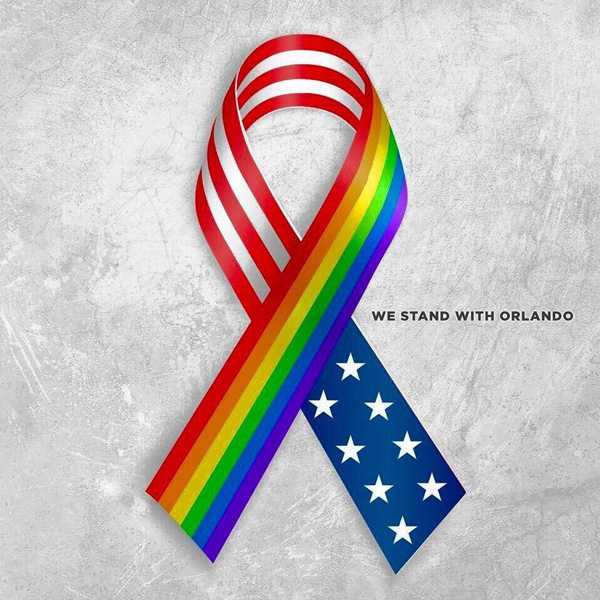
- [THE BIG QUESTION] WHAT’S YOUR FAVORITE FEMALE ENSEMBLE IN MOVIES? - July 22, 2016
- [IN THEATERS NOW] THE BOY (2016) - January 24, 2016
- Cult Movie Mania Releases Lucio Fulci Limited Edition VHS Sets - January 5, 2016

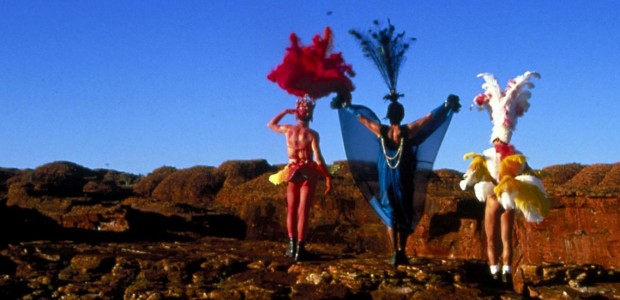




No Comments